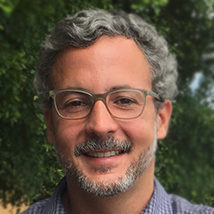The CNE Growth Commission for Puerto Rico: Proposed Notes Towards an Agenda
Published on March 24, 2017 / Leer en español

Non-Resident Senior Fellow

Research Director
DOWNLOAD
RELATED CONTENT
SHARE
Vision and Rationale
Devising economic development opportunities for Puerto Rico and strengthening execution capabilities are the most pressing goals for policymakers in Puerto Rico and the United States. But achieving long-term, sustainable economic growth and development is a complex endeavor: there are no quick fixes or silver bullets. The task requires building realistic goals and managing execution capabilities.
Our vision is based on the premise that long-term sustained economic growth is a result of a country’s capability to progressively move into higher value-added activities. This is achieved by improving the types and quality of the goods and services produced and by finding innovative and more efficient ways of producing them. This is especially true in the 21st century, which is characterized by ever-deeper inroads into a knowledge-based economy and by heightened global competition. Therefore, any new economic strategy for long-term growth ought to be focused on:
(1) Speeding up the process of economic structural change by advancing the economy’s insertion in high-value niches, investing in innovation, and adopting new knowledge and technologies.
(2) Creating the institutional framework to promote this structural change; that is, revamping the institutions whose mission is to promote this transformation.
(3) Devising public policies that help raise the wellbeing of society in an inclusive manner, so that most of its members can benefit from the gains of improved economic performance.
An important element to keep in mind is that the capability of the government to implement its development strategies, policies, and programs, as well as to provide continuity to these, is a key constraint. Therefore, developing the capabilities for private actors and the government to work together towards these objectives is a key component of any proposed growth and development agenda.
Objectives
The CNE Growth Commission will identify and produce the relevant analyses, policy designs and, in certain instances, demonstration projects to improve economic and social policy decision making suited for Puerto Rico’s context. These initiatives should advance the creation and institutionalization of learning cycles via sustained collaborations between government policy-makers, practitioners, and key stakeholders in academia, the NGO community, and the private sector.
Proposed Agenda
The Commission’s projects will work towards (1) identifying and suggesting ways to relax local and external constraints that inhibit the territory from speeding up the process of economic structural change towards higher productivity activities; and (2) generate opportunities to diversify the portfolio of high productivity activities in the economy. The proposed undertakings will focus on areas with potential for high impact:
Area 1: Private Sector Development Policy
The strategy to move Puerto Rico’s into higher value-added activities and improve productivity across sectors of the economy will require a rigorous diagnostic analysis. This will help determine an ex ante optimal research portfolio to be built for purposes of industrial promotion activities. This, in turn, will require specifically building realistic goals and management execution capabilities for the institutions of economic development in the territory.1 , 2
Area 2: Macro-Fiscal Policy
• Pro-Competitiveness Tax Policy, Macro-Fiscal and Public Credit/Debt Issues
A Working Group of the Commission will develop feasible proposals for tax policy reform with the aim of (i) enhancing the territory’s competitiveness and (ii) reducing tax distortions that may inhibit productivity growth in the private sector. The Group will work on evaluating the potential for a disciplined fiscal reform to enhance the territory’s competitiveness, given its inclusion in the US monetary union. A rigorous assessment of debt restructuring needs fundamental for restoring economic growth will also be performed.
Area 3: Other Horizontal Reforms to Enhance Competitiveness
The Commission’s efforts will also identify opportunities for effective reform in areas with potential for high impact to enhance the competitiveness of local and multinational producers, such as: tax and competition policy, human capital and workforce development, energy & CIT infrastructure.
Final Thoughts
This preliminary agenda aims to define a comprehensive development framework for the island to upgrade its outdated economic policy. The task will be difficult, but the CNE Growth Commission for Puerto Rico has the potential to identify and validate policies that decision-makers in Puerto Rico and Washington DC can implement to pave the way for sustainable long-term development. In this sense, it is possibly one of the most urgent and needed initiatives in the island’s current policy agenda
1 For example, revamping competition policy and its enforcement, structural access to credit, improving the regulatory and fiscal toolkit of exemptions, credits and deductions, and strengthening the research and innovation ecosystem.
2 Caveat: At present, key public institutions such as the PR Industrial Development Company, PR Science and Technology Trust, Government Development Bank, Economic Development Bank, have depleted their assets and funding independence and lack experienced executives, while fiscal and competition components are controlled by institutions outside the economic development arena (i.e., Department of the Treasury on tax regime for multinationals, emerging and existing businesses; Department of Justice on competition policy).
